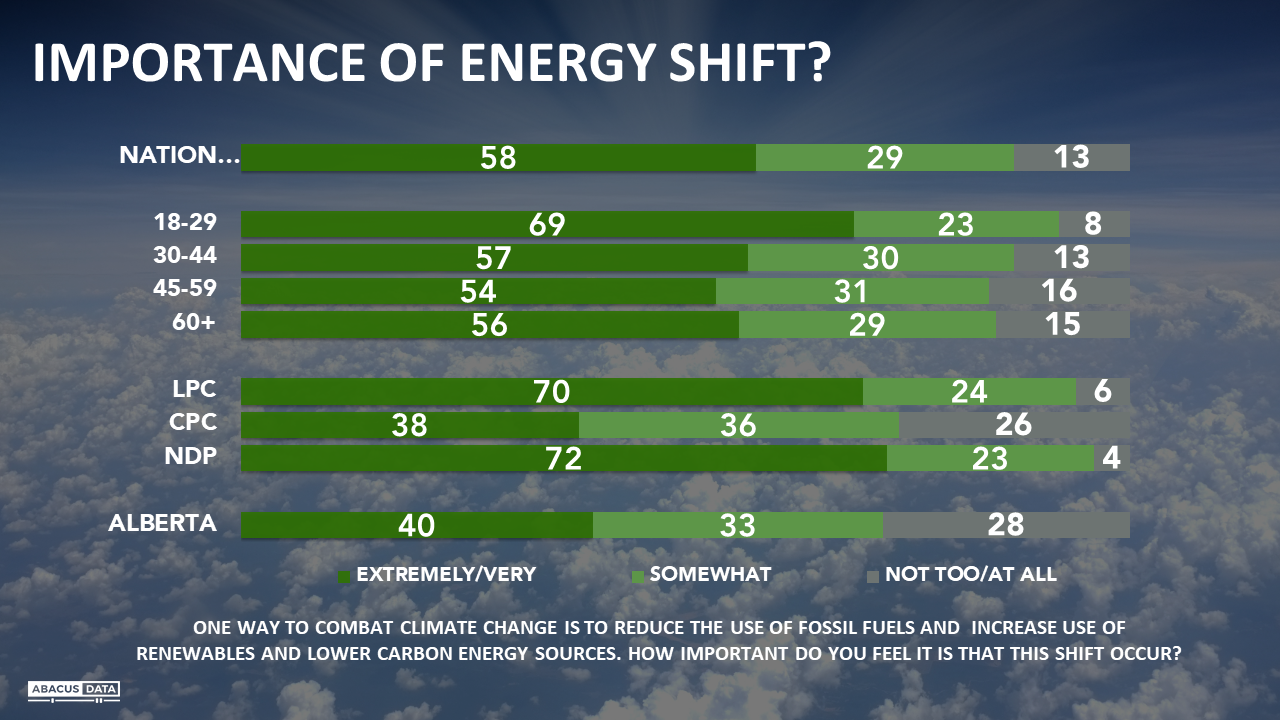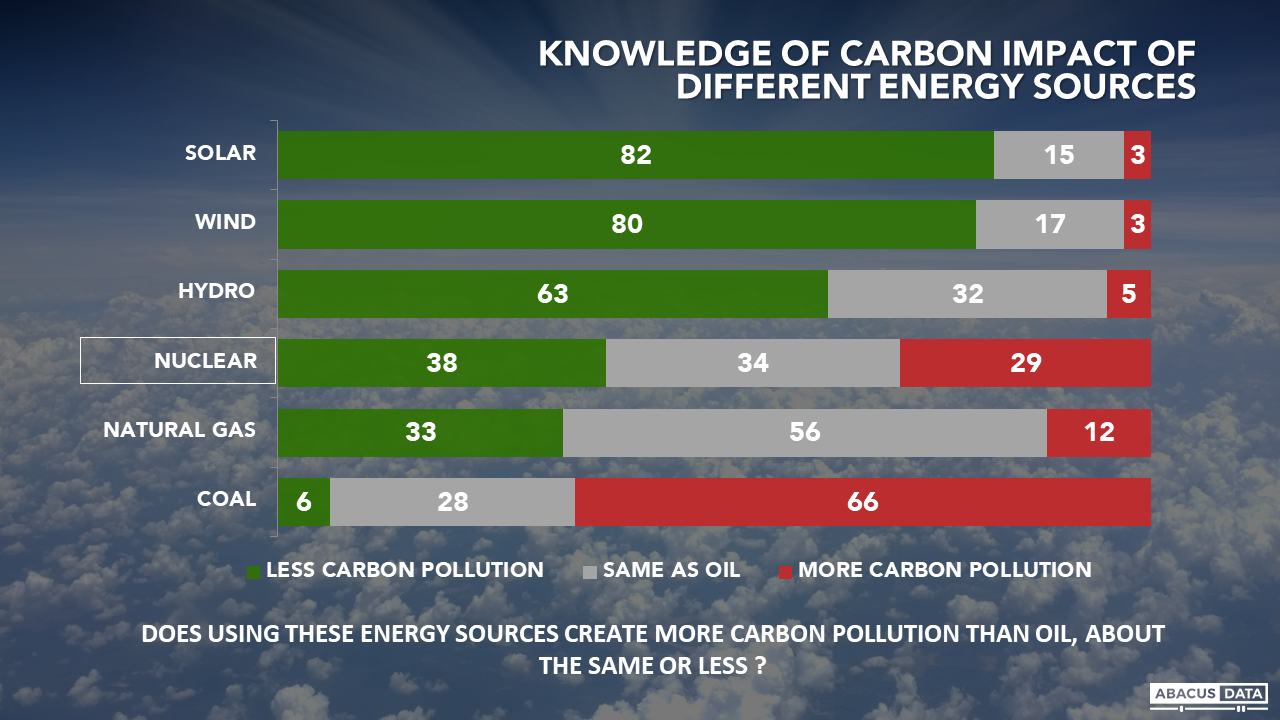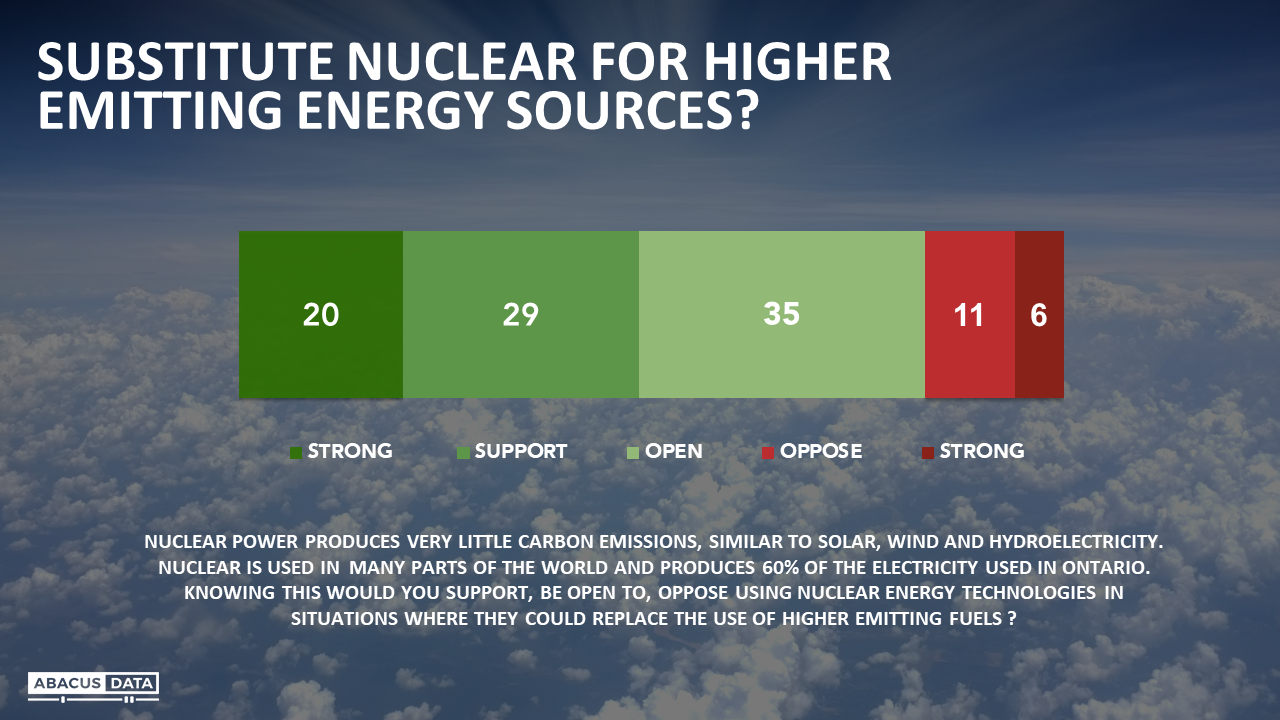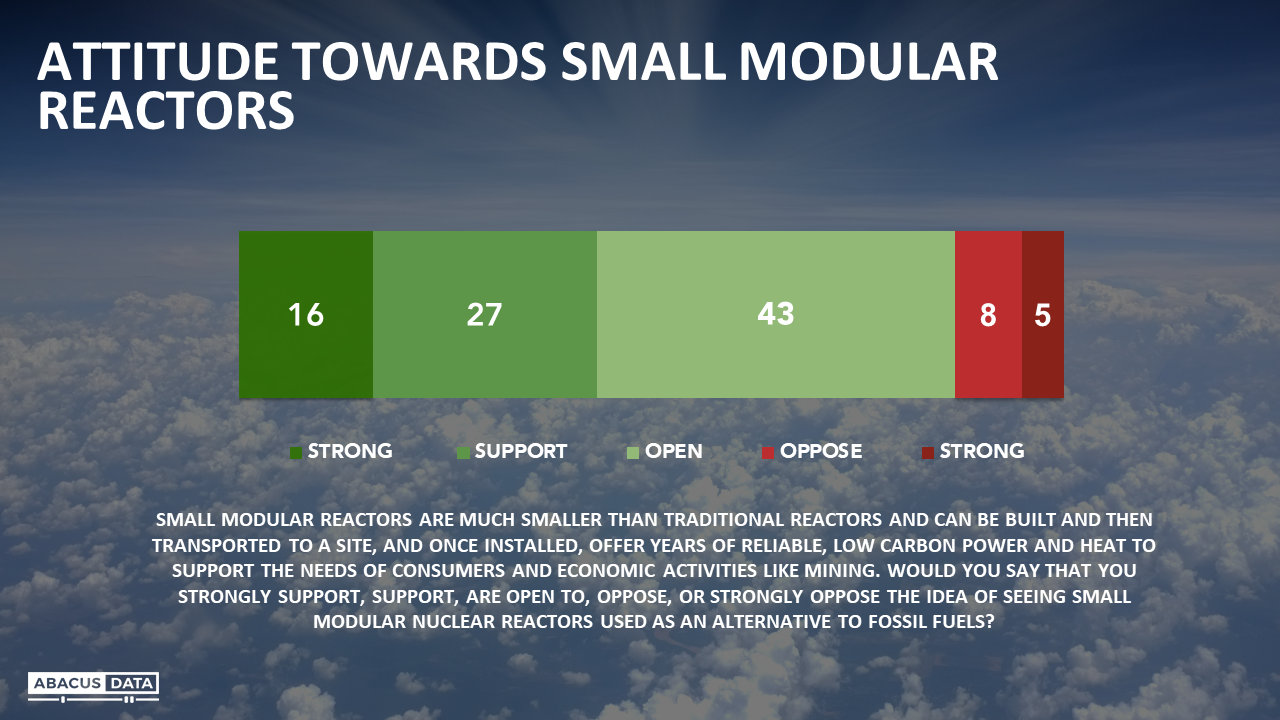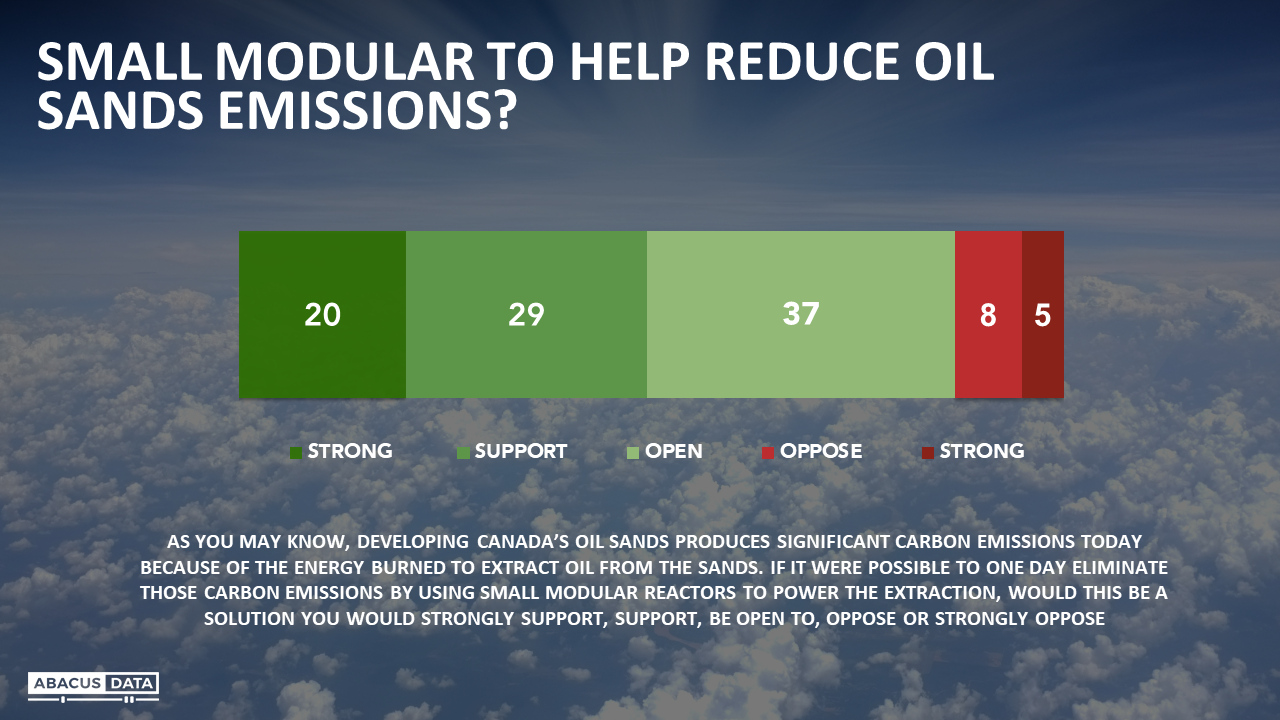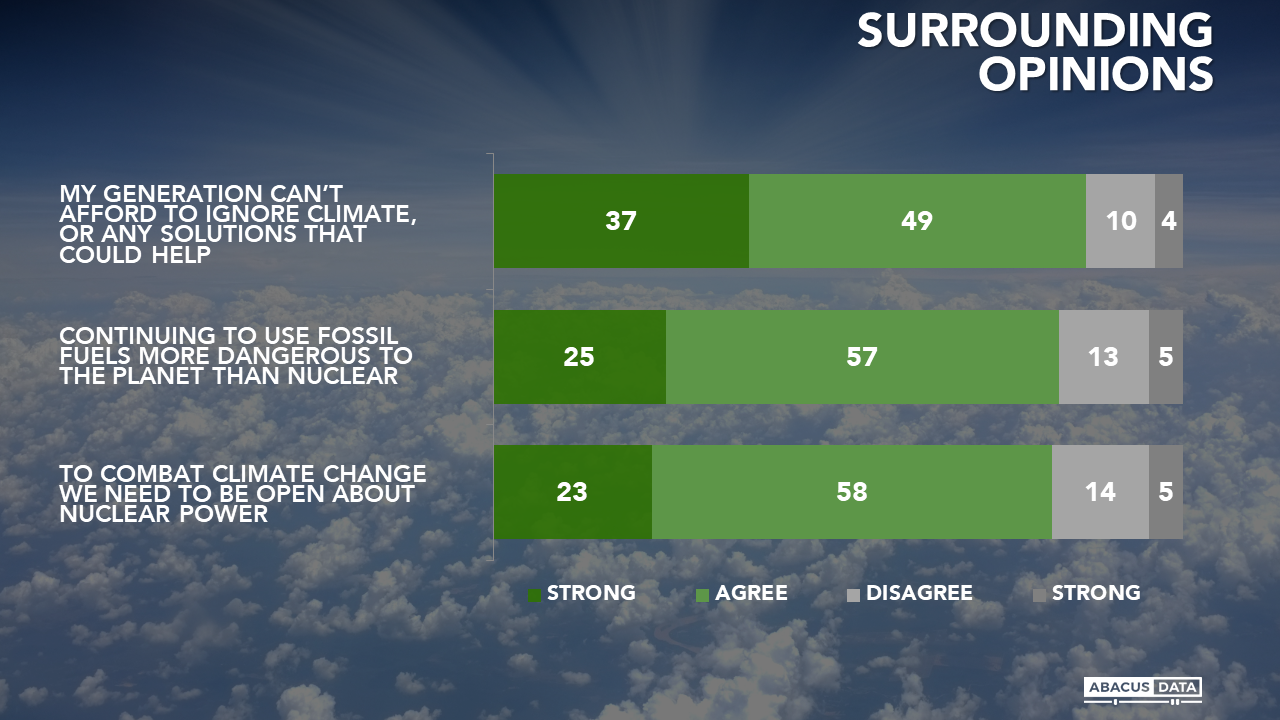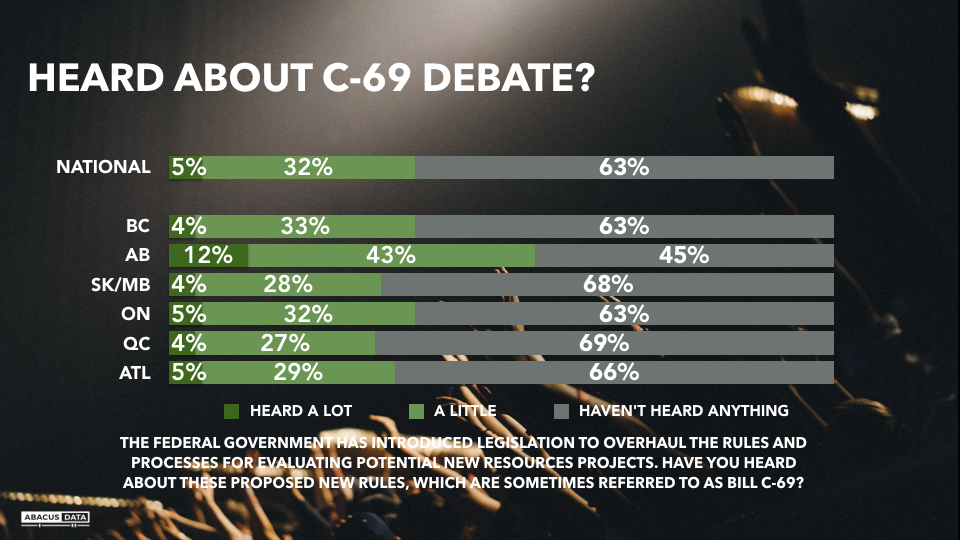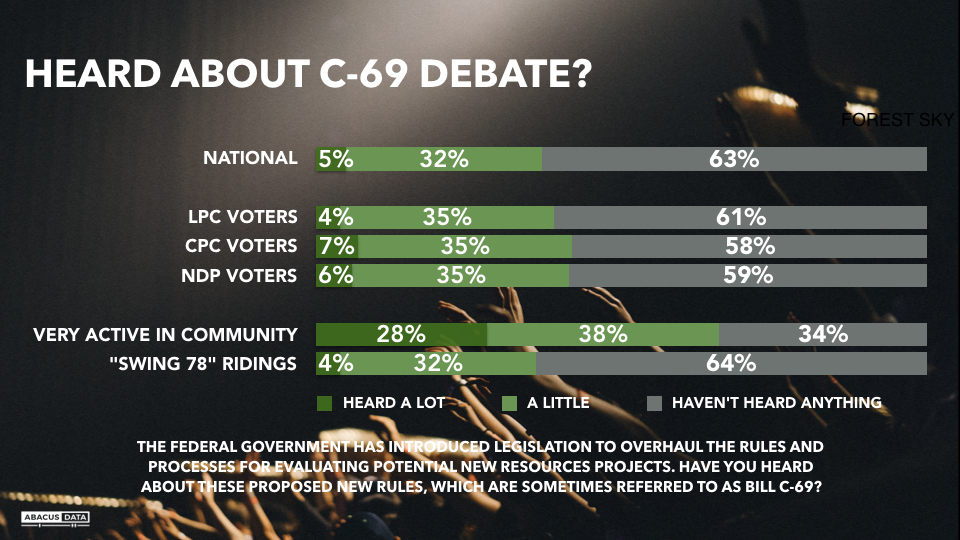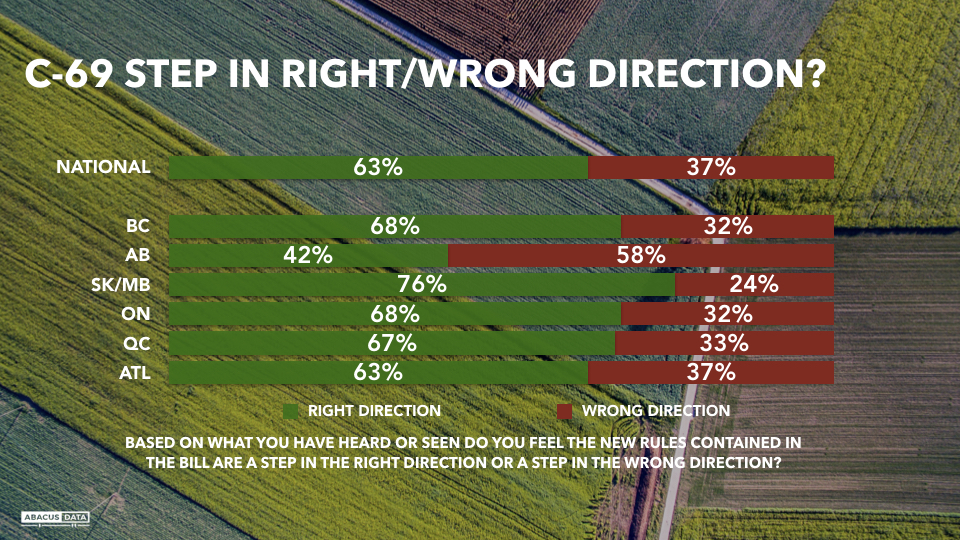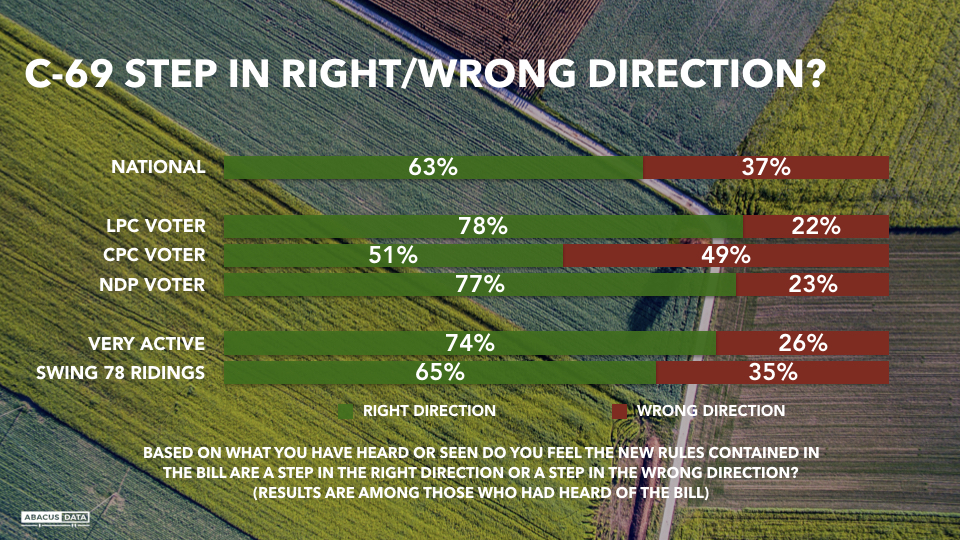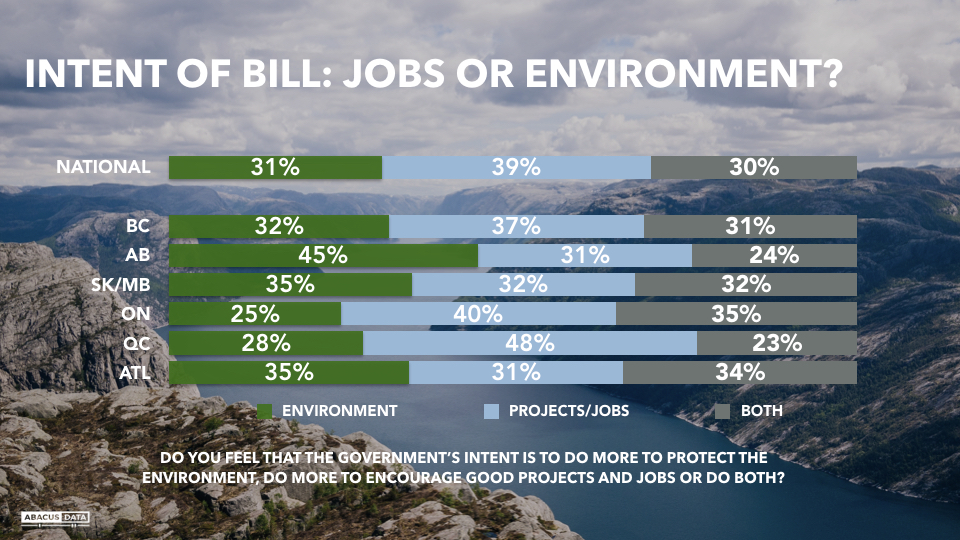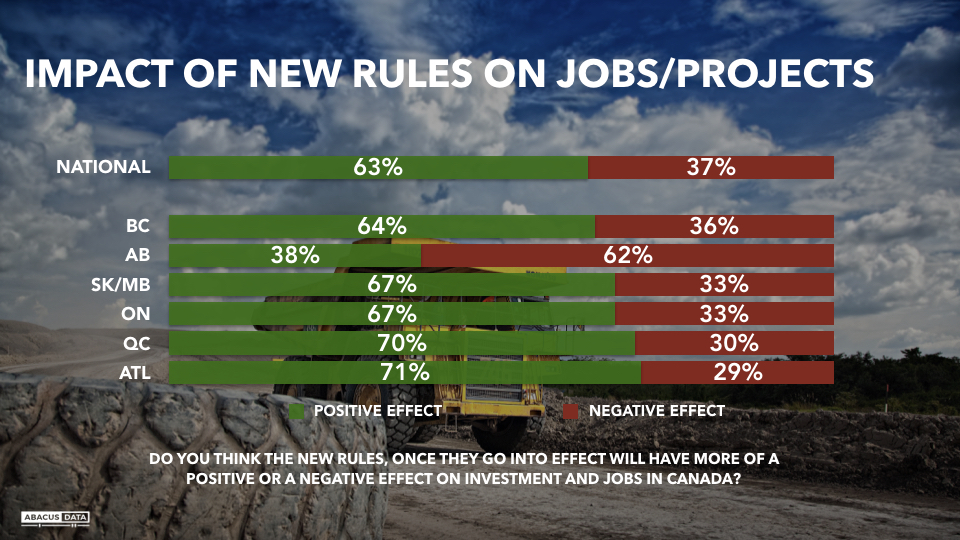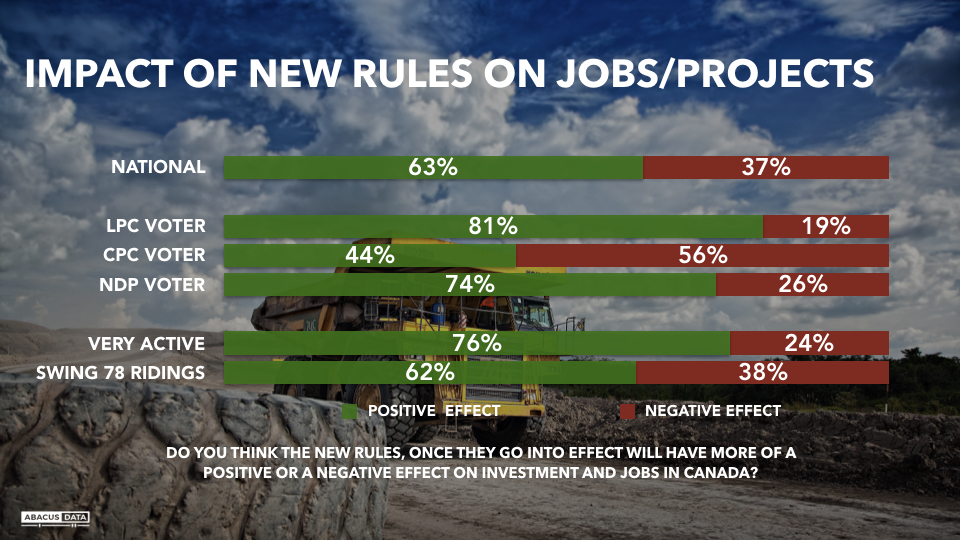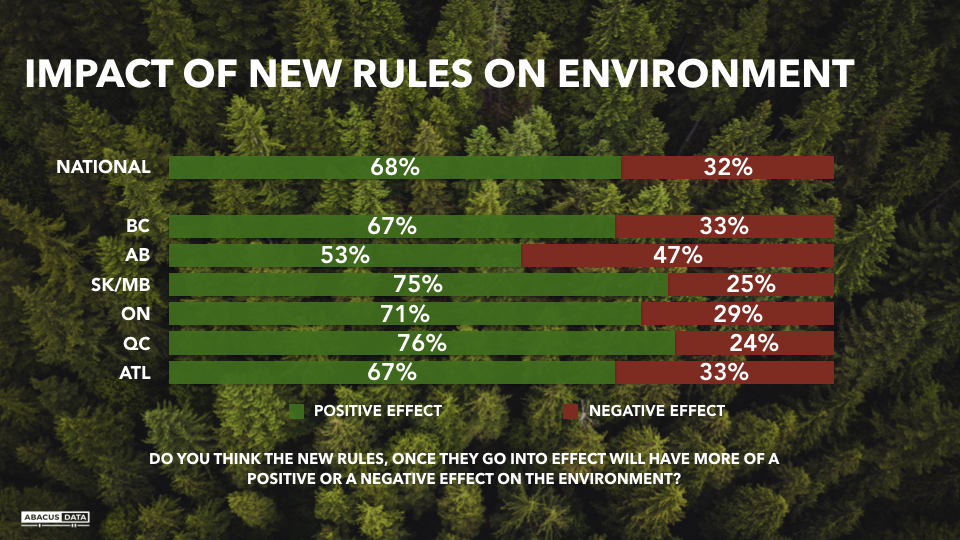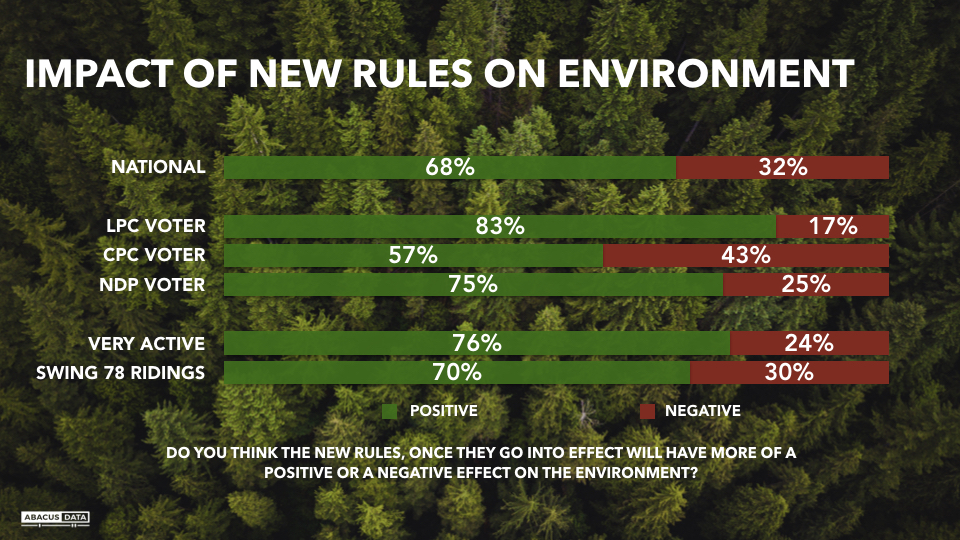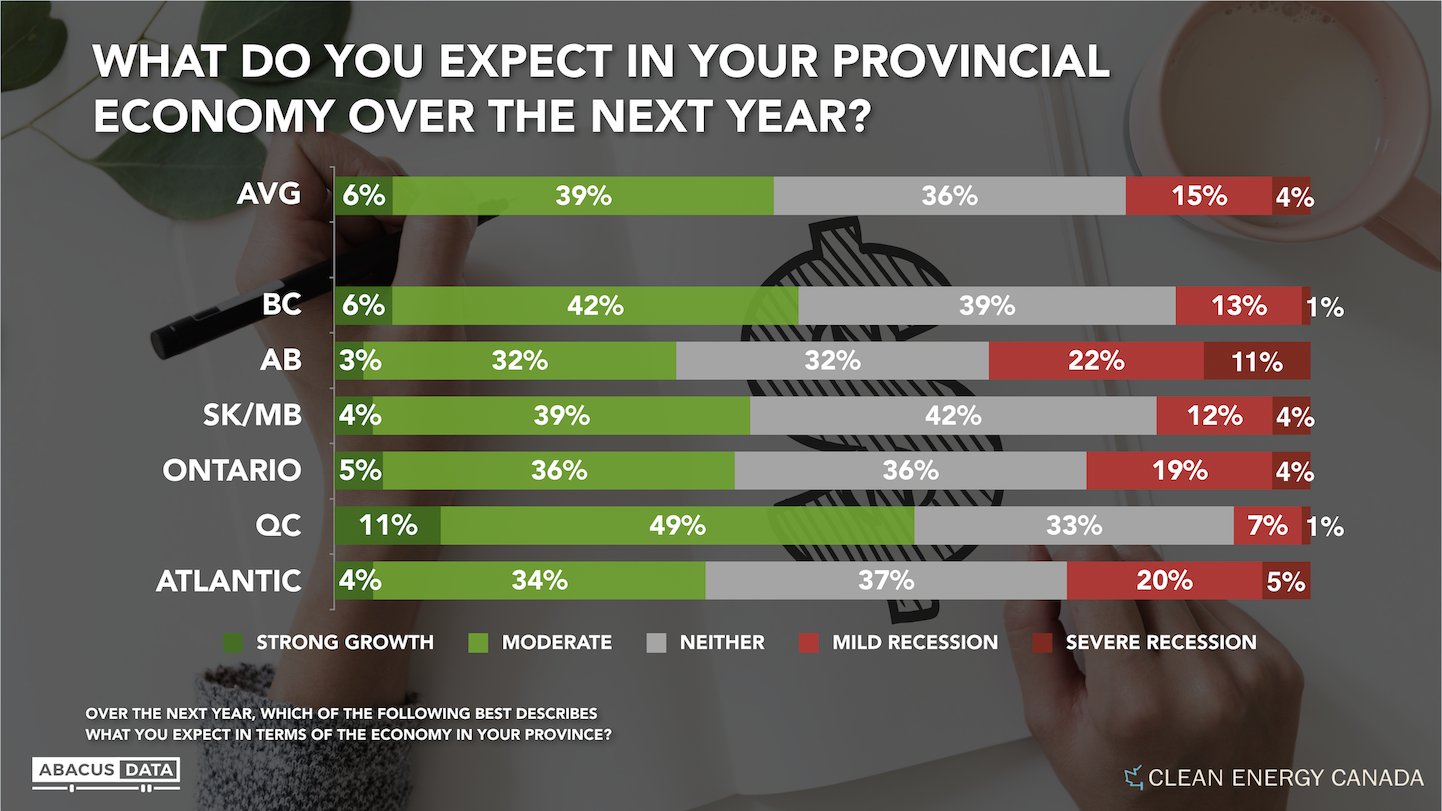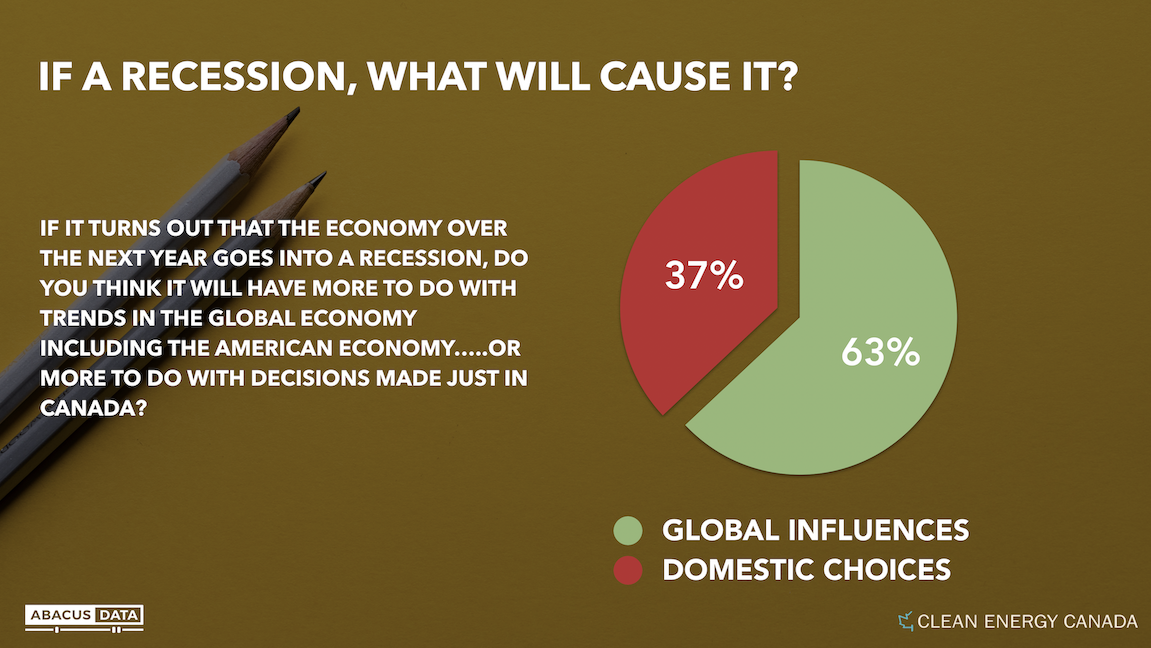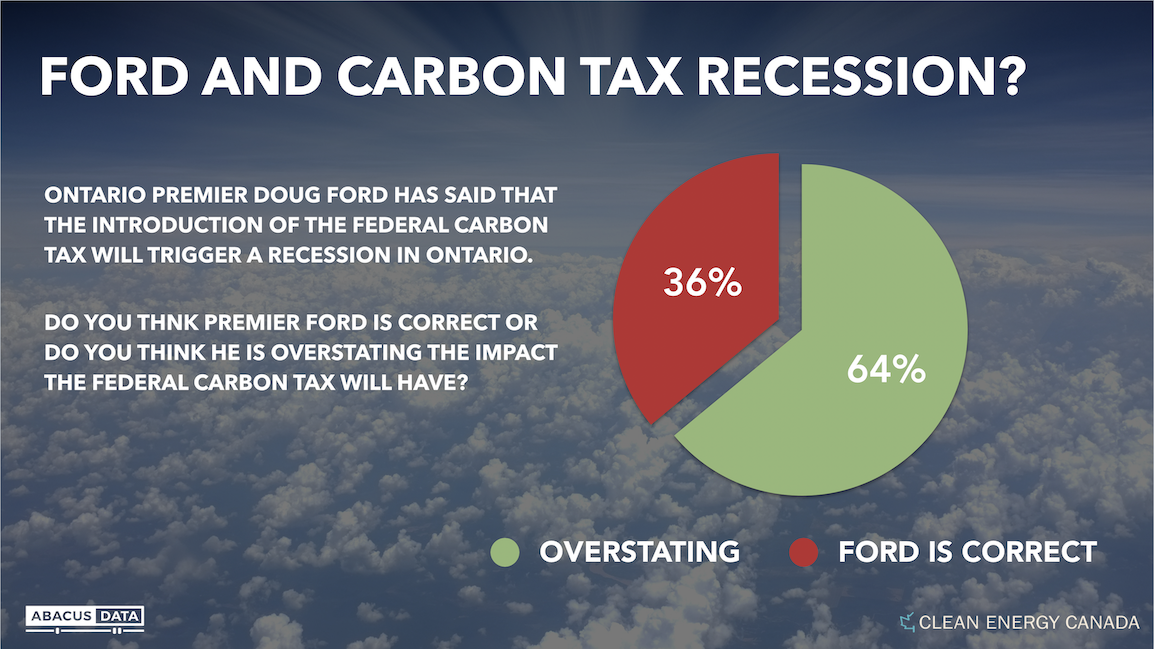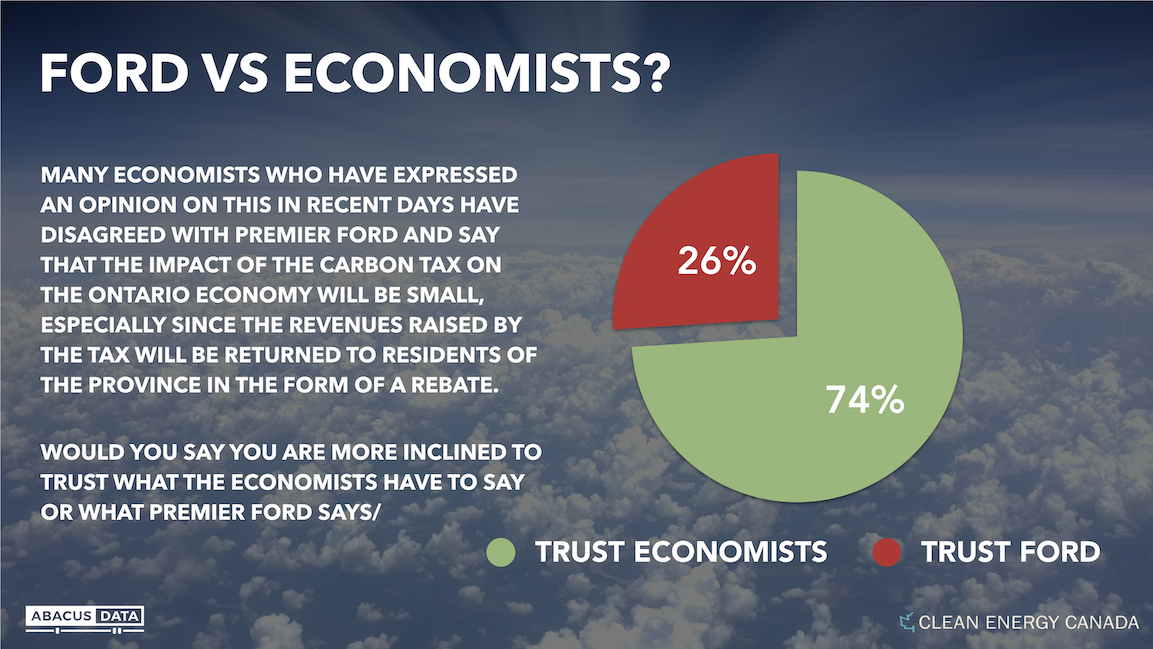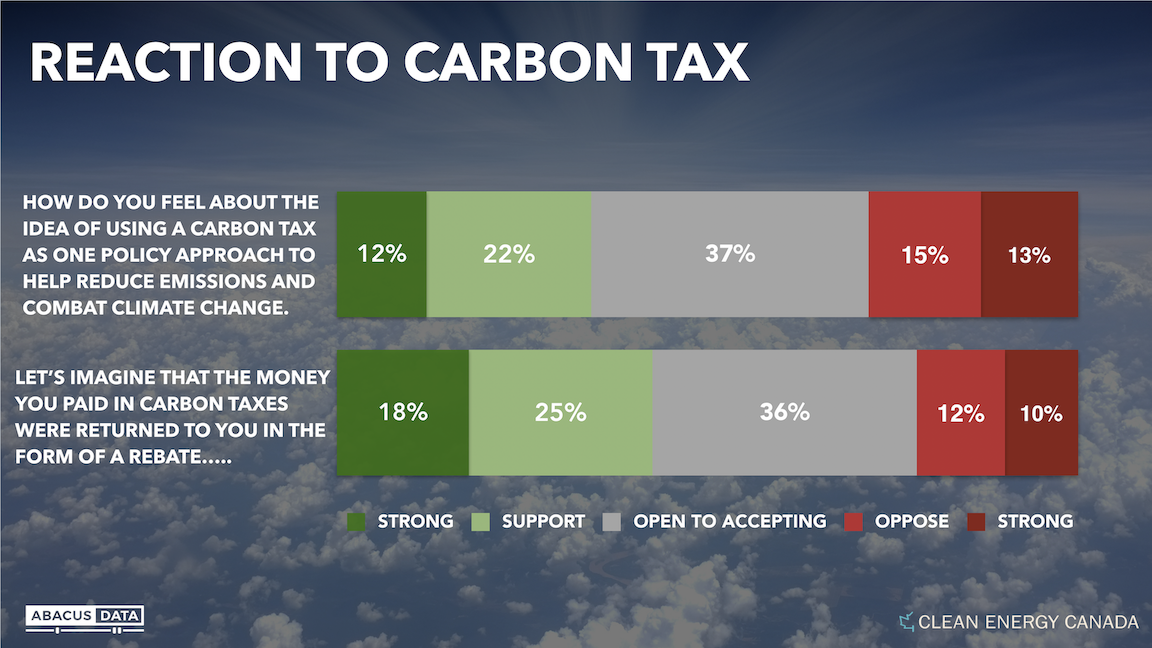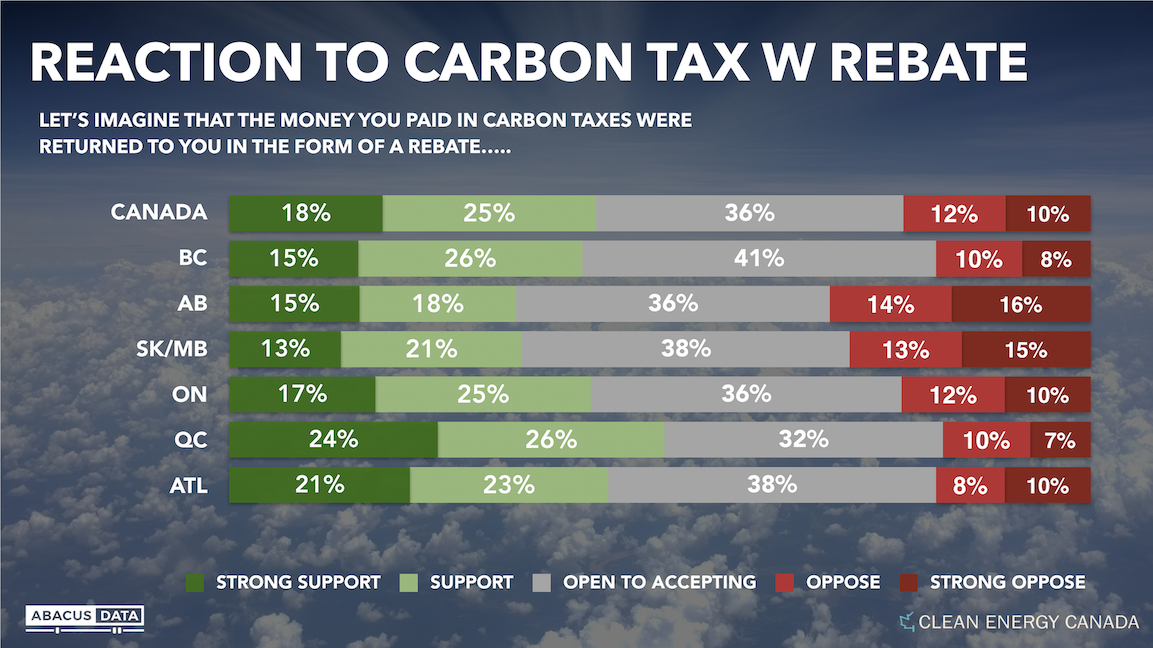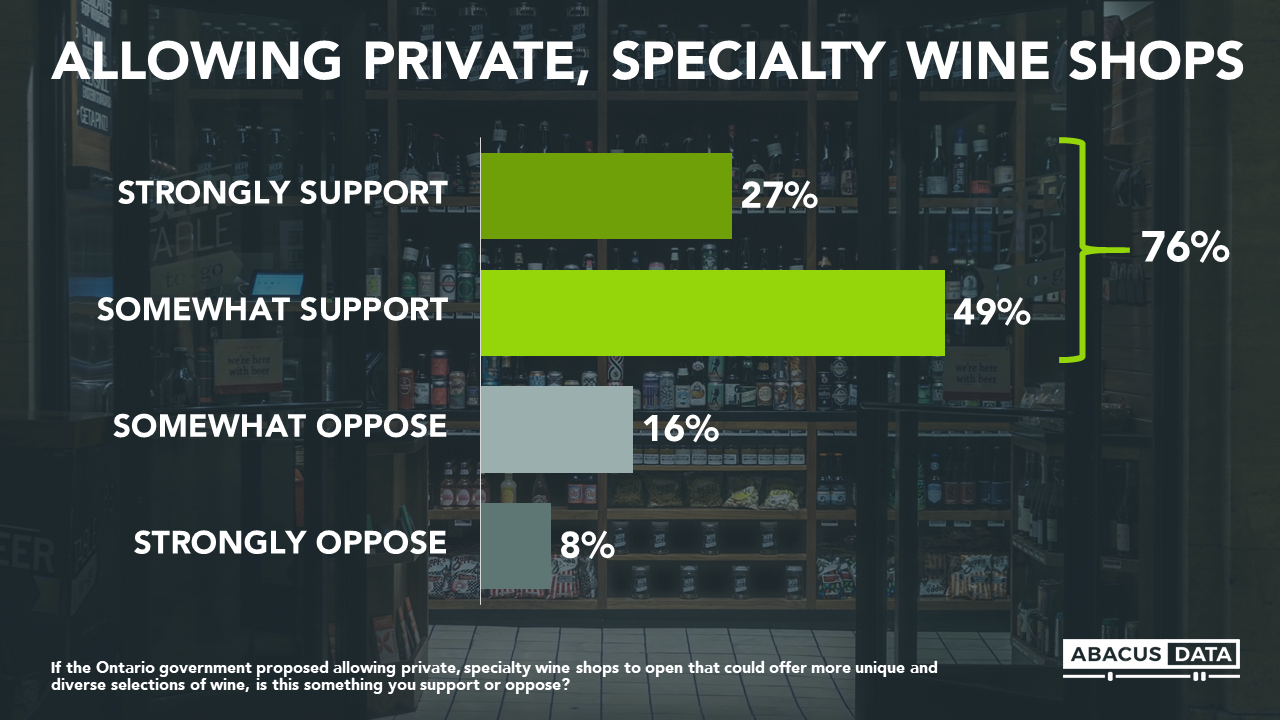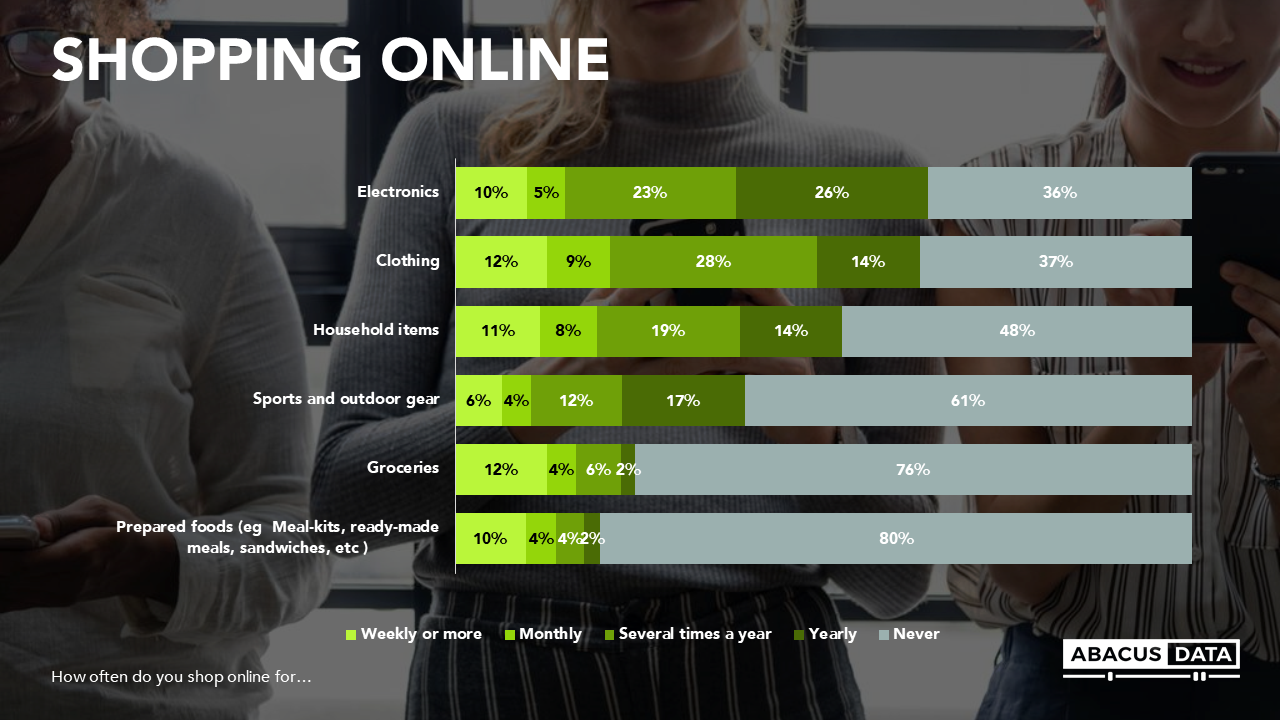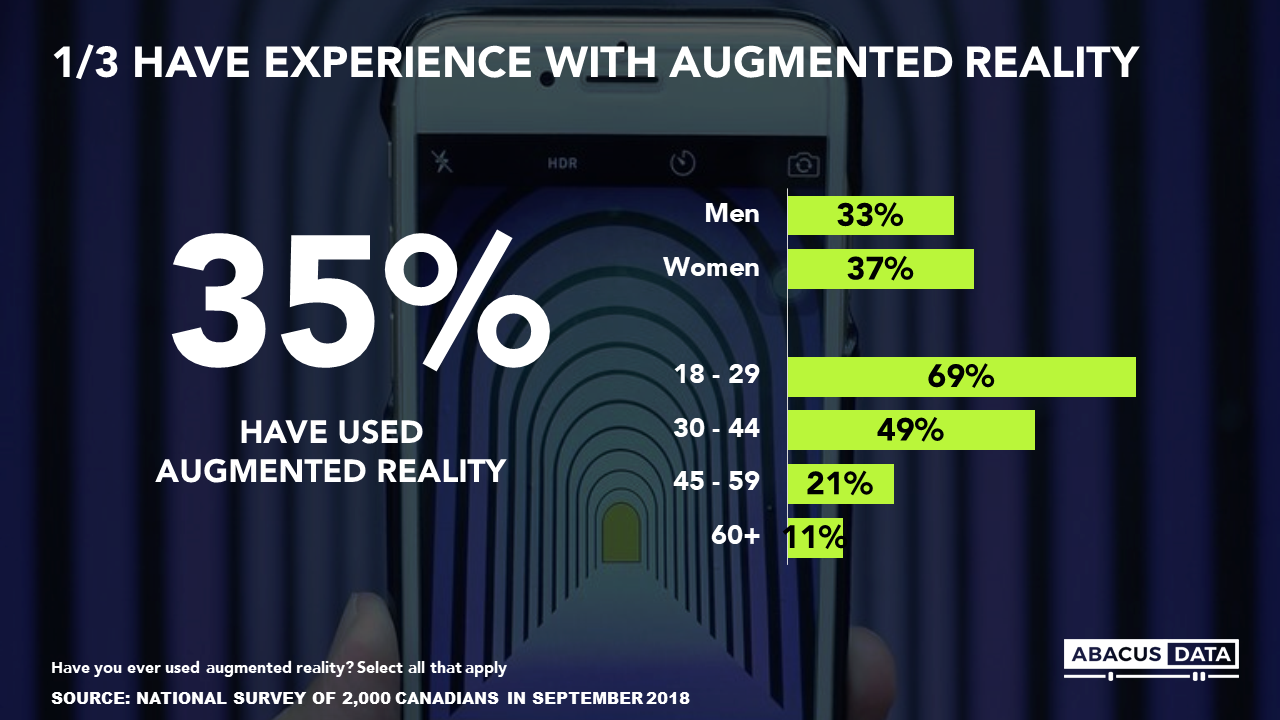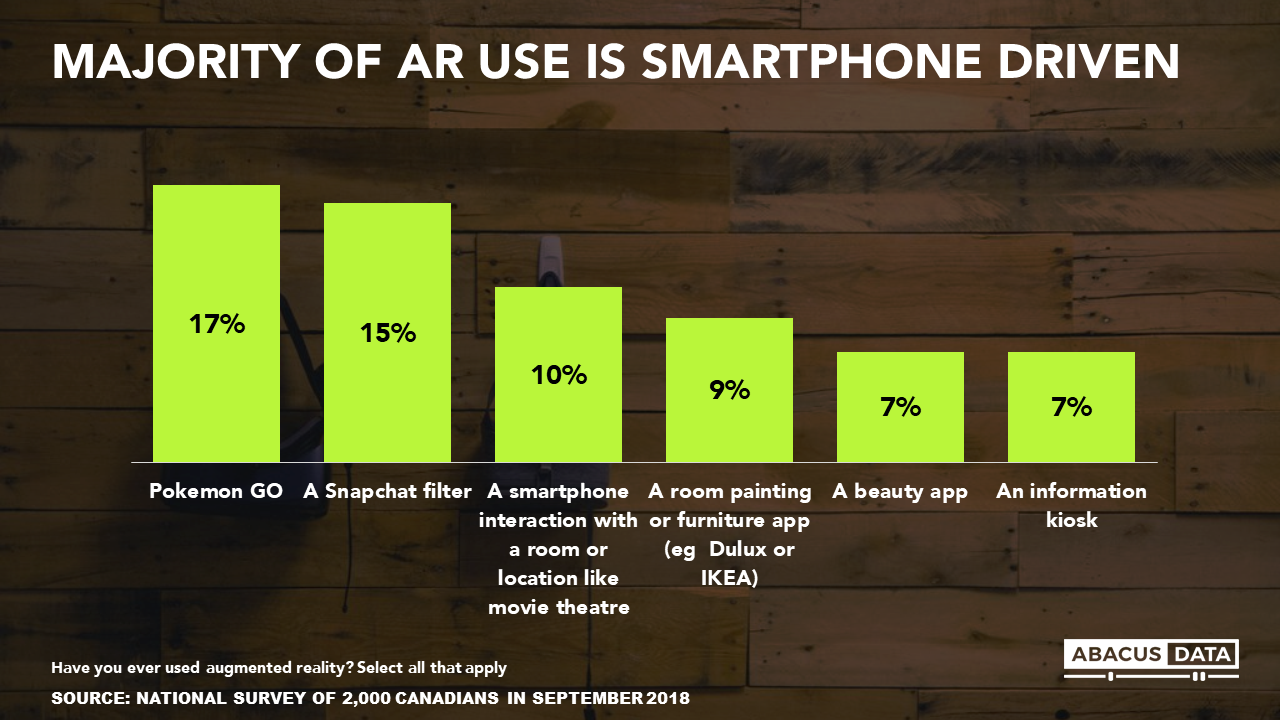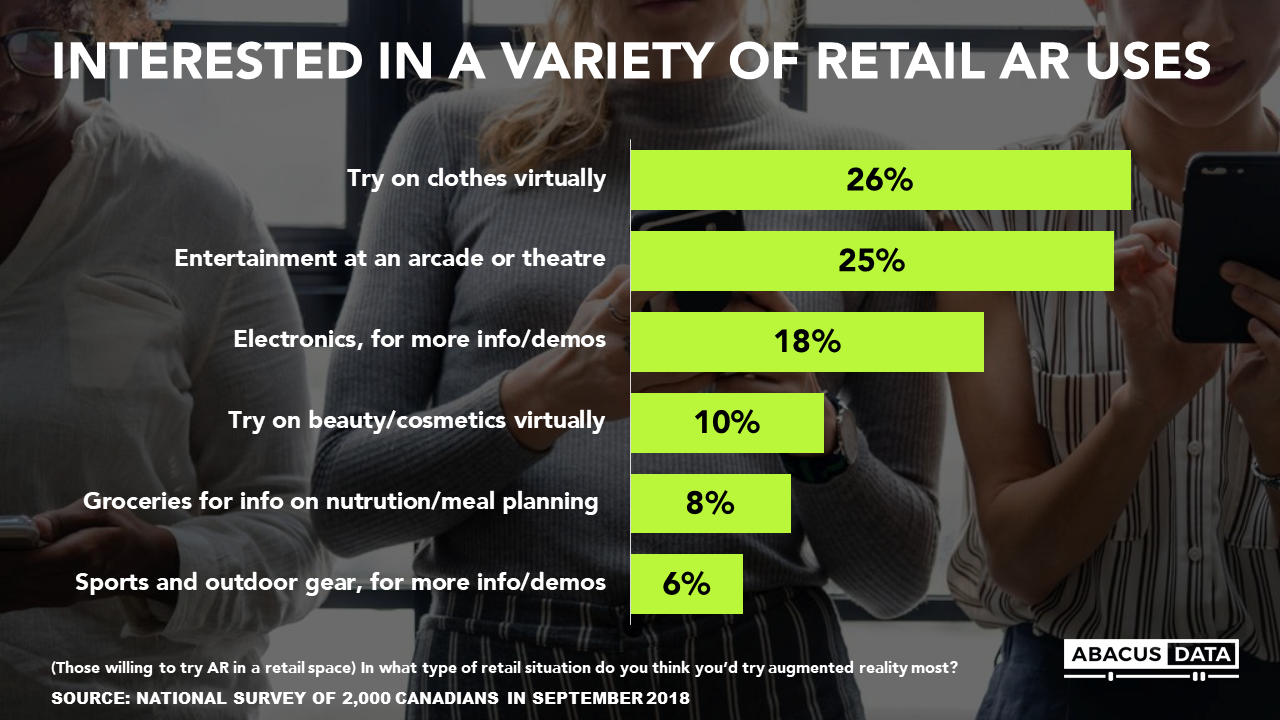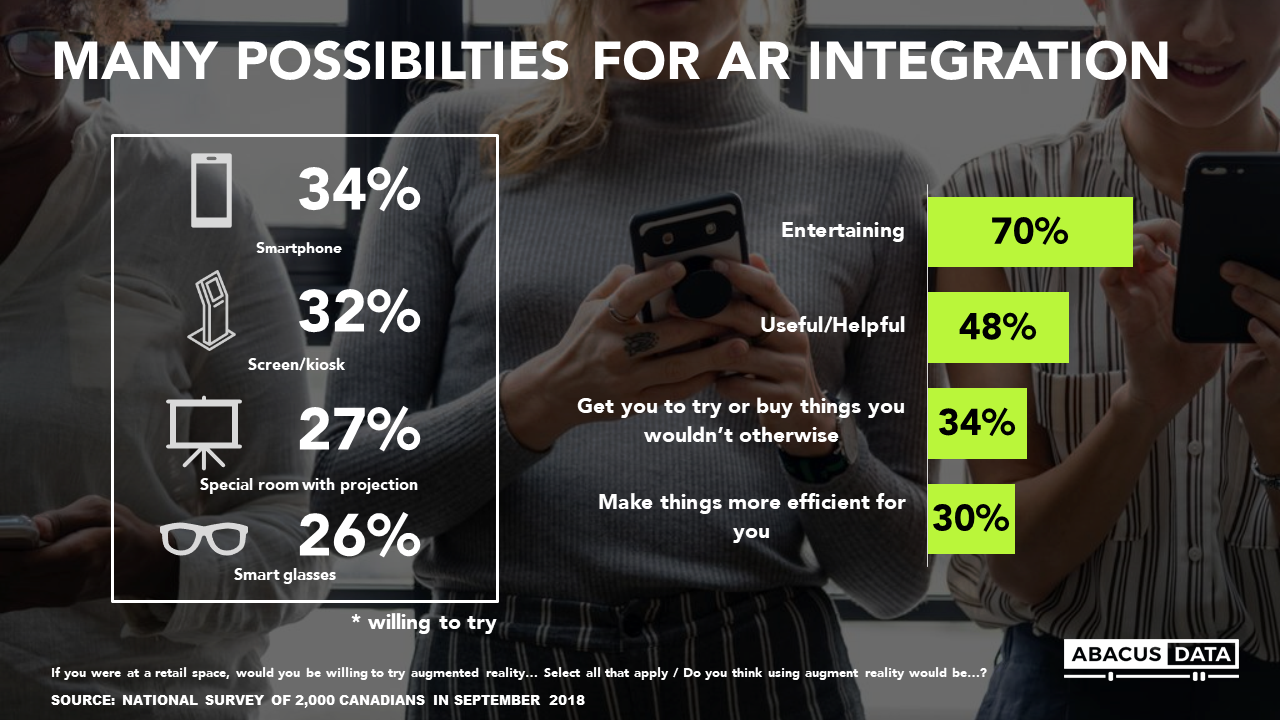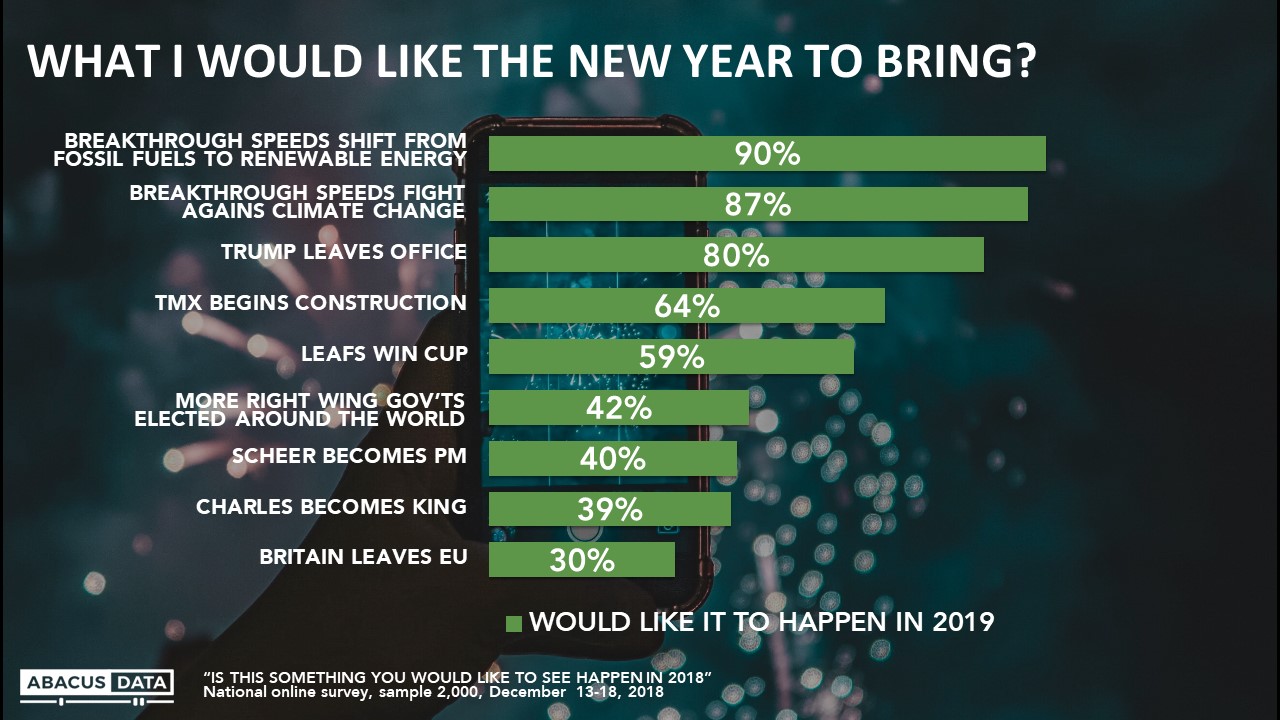Has the SNC-Lavalin/Wilson-Raybould Controversy Impacted Public Opinion?
Over recent weeks we have been polling Canadian political attitudes regularly and feel we have a good data set to gauge the impact of the controversy to date, based on a total of more than 8,800 interviews conducted between January 30 and March 4, 2019.
Between January 30 and February 26, we have three snapshots taken before or after significant moments in the timeline of the controversy. Since February 28, we have been conducting 300 interviews daily and report a three-day roll-up of the results in this report.
Each snapshot is weighted to match the Canadian population independently.
—
Wave 1: Conducted from January 30 to February 5, 2019, and interviewed 2,500 Canadian adults. All interviews were conducted prior to the Globe and Mail story on about Ms. Wilson-Raybould and SNC-Lavalin.
Wave 2: Conducted from February 8 to 11, 2019 and interviewed 2,500 Canadian adults. All interviews were conducted prior to Ms. Wilson-Raybould resigning from Cabinet.
Wave 3: Conducted from February 22 to 26, 2019 and interviewed 2,347 Canadian adults. All interviews were conducted after Mr. Butts resigned as Principal Secretary to the Prime Minister.
3-Day Rolling survey: Conducted from February 28 to March 4, 2019, with 300 interviews being conducted daily. Results reported include a three-day rolling sample with a total sample size of 900. At times in this report, we report on the entire 1,500 interviews conducted between this period. All interviews were conducted after Ms. Wilson-Raybould’s testimony and before Dr. Philpott’s resignation from cabinet and Mr. Butt’s testimony to the Justice Committee.
—
Over the course of these snapshots, we asked the same questions which allow us to compare responses and assess the impact of events across this period. During the rolling survey portion, we also asked how closely people were following the results and whether they believe the Prime Minister should resign because of the controversy.
We also include results from our last national survey conducted at the end of December as a reference point.
Here’s what we found:
VOTING INTENTIONS
The Conservatives and Liberals have been within two points of each other for most of February. Following Ms. Wilson-Raybould’s testimony, Liberal support dropped slightly while Conservative support increased. The six-point Conservative lead nationally is the largest Conservative lead over the Liberals we have registered in our polling since the last federal election.

When we roll up all the interviews conducted since Ms. Wilson-Raybould’s testimony, we find the Conservatives lead in Alberta, Saskatchewan, and Manitoba by a large margin and have opened up a 7-point lead in Ontario. The Liberals lead by 14-points in Quebec and 9-points in Atlantic Canada. In BC, we find a close race between the Conservatives and Liberals.

APPROVAL OF THE GOVERNMENT
Since December 2018, approval of the federal government is down 8-points with the sharpest drop happening after Ms. Wilson-Raybould’s testimony. Almost half of Canadians now say they disapprove of the government’s performance – the highest we have registered since the last election.

IMPRESSIONS OF JUSTIN TRUDEAU
Positive impressions have declined 11-points since December from 44% to 33%, negatives have risen from 37% to 46%. Views of Mr. Trudeau changed more rapidly after last week’s testimony by Ms. Wilson-Raybould and have stayed consistent over the past week.

IMPRESSIONS OF ANDREW SCHEER
Impressions of Mr. Scheer have not changed much over the period of this study. In December, 30% had a favourable view while 29% had an unfavourable view. As of March 4, those numbers are basically identical: 30% positive and 26% negative.

IMPRESSIONS OF JAGMEET SINGH
Positive impressions of Mr. Singh have moved not moved much over this period staying around 20%. Negative impressions have hovered around 30%. We do see evidence yet that his by-election victory on February 25 has changed the public’s impression of the NDP leader.

PREFERRED PRIME MINISTER
When we ask respondents who they would prefer to be Prime Minister after the next election, our most recent sounding finds 35% preferring Mr. Trudeau, down 10-points since December and 4-points since the Ms. Wilson-Raybould’s testimony. 33% prefer Mr. Scheer, up 4-points since December and up a marginal 2-points since before Ms. Wilson-Raybould’s testimony. 13% would prefer Mr. Singh or Ms. May to be Prime Minister while 7% would choose Mr. Bernier.

ATTENTION BEING PAID TO THE CONTROVERSY
Since Ms. Wilson-Raybould’s testimony, we have been tracking how closely Canadians have been following news about the controversy. Overall, we don’t see any change since last week with about 40% saying they are following the story very or pretty closely, about half being aware but not following it much at all and about 14% who say they haven’t heard about the story before.
As expected, attention being paid to this controversy is closely related to one’s partisanship. Conservative partisans are the most likely to be following the story closely followed by Liberal identifiers. Only 36% and 26% of NDP and non-partisans are following the story closely respectively.


SHOULD PRIME MINISTER TRUDEAU RESIGN?
We also ask respondents whether they think the Prime Minister should resign because of these events. Since Ms. Wilson-Raybould’s testimony, about 40% of Canadians are inclined to think the Prime Minister should resign while about 45 to 48% (over this period) feel he shouldn’t resign. An equal number definitely think he should resign and definitely think he shouldn’t resign.

Those following the news of the controversy more closely are more likely to think the Prime Minister should resign – although opinion is still fairly divided.

When we compare results across party identification, we find that Conservatives are far more likely to think the Prime Minister should resign than other Canadians. 48% think he should definitely resign while another 27% are inclined to think he should. 15% of Conservatives don’t think he should resign.
In contrast, only 5% of Liberal partisans think the PM should definitely resign with almost eight in ten saying they don’t think he should or definitely should not resign.
Among non-partisans, 32% are inclined to think he should resign, 46% are inclinded to think he shouldn’t resign and 22% are not sure.

UPSHOT
According to Bruce Anderson: “The 2015 election was a volatile and competitive one, and 10 weeks into 2019, it seems this year’s election might be as dynamic. If experience has taught us anything it is to resist the temptation to predict in March what voters will consider important in October. What we can tell is that a substantial enough number of people have been following the SNC Lavalin question, and the narrative they have been exposed to, has shaken up the political landscape, and created opportunities for the Conservatives and greater risks for the Liberal Party.”
According to David Coletto: “We’ve been tracking how Canadians are reacting to the events surrounding SNC-Lavalin and Ms. Wilson-Raybould for the past month. Our data gives us a unique ability to assess the impact of these events on public opinion.
What our data shows is the controversy has impacted public attitudes towards the Prime Minister and the Liberal Party. The Liberals now trail the Conservatives by 6-points, the largest Conservative lead in our tracking since the 2015 election. The government’s approval rating is down 8-points since December and 4-points since Ms. Wilson-Raybould’s testimony. More people now have a negative view of the Prime Minister than a positive one – the first time since last March that our surveys have found this and about as many people would prefer Mr. Trudeau to be the prime minister after the next election as would Mr. Scheer – a big shift since the end of last year.
And this all before Dr. Philpott’s resignation on Monday.
At the same time, we haven’t seen any noticeable improvement in views towards either Mr. Scheer or Mr. Singh. While vote intention has moved in the Conservative’s favour, Mr. Trudeau still leads Mr. Scheer on who people would prefer as prime minister after the election. And despite his by-election win last week, the public’s view of Mr. Singh remains more negative than positive.
But this controversy is still primarily about the Prime Minister. Before Dr. Philpott’s resignation, most Canadians didn’t think the Prime Minister needed to resign over this controversy. Only one in five Canadians felt he should definitely resign. The same number felt he definitely should not resign. Most are somewhere in between.
It’s clear this controversy has hurt the Prime Minister’s reputation and with it the entire government. How people react to Dr. Philpott’s resignation and the additional testimony to come this week may further impact these opinions. We will continue to track opinion dynamics.”
Don’t miss any of our releases and receive our weekly “Worth a Look” newsletter by signing up for our email list. We promise no more than 2 emails a week… unless there’s something really important we want to share.
METHODOLOGY
Wave 1: Our survey was conducted online with 2,500 Canadians aged 18 and over from January 30 to February 5, 2019. A random sample of panelists was invited to complete the survey from a set of partner panels based on the Lucid exchange platform. These partners are double opt-in survey panels, blended to manage out potential skews in the data from a single source.
The margin of error for a comparable probability-based random sample of the same size is +/- 2.0%, 19 times out of 20. The data were weighted according to census data to ensure that the sample matched Canada’s population according to age, gender, educational attainment, and region. Totals may not add up to 100 due to rounding.
Wave 2: Our survey was conducted online with 2,500 Canadians aged 18 and over from January February 8 to 11, 2019. A random sample of panelists was invited to complete the survey from a set of partner panels based on the Lucid exchange platform. These partners are double opt-in survey panels, blended to manage out potential skews in the data from a single source.
The margin of error for a comparable probability-based random sample of the same size is +/- 2.0%, 19 times out of 20. The data were weighted according to census data to ensure that the sample matched Canada’s population according to age, gender, educational attainment, and region. Totals may not add up to 100 due to rounding.
Wave 3: Our survey was conducted online with 2,374 Canadians aged 18 and over from January February 22 to 26, 2019. A random sample of panelists was invited to complete the survey from a set of partner panels based on the Lucid exchange platform. These partners are double opt-in survey panels, blended to manage out potential skews in the data from a single source.
The margin of error for a comparable probability-based random sample of the same size is +/- 2.1%, 19 times out of 20. The data were weighted according to census data to ensure that the sample matched Canada’s population according to age, gender, educational attainment, and region. Totals may not add up to 100 due to rounding.
3-Day Rolling Survey: Between February 28 and March 4, 2019 we interviewed a random, and new sample of 300 respondents. We roll up the three days into a sample of 900 respondents.
The random sample of panelists was invited to complete the survey from a set of partner panels based on the Lucid exchange platform. These partners are double opt-in survey panels, blended to manage out potential skews in the data from a single source.
The margin of error for a comparable probability-based random sample of the same size is +/- 3.3%, 19 times out of 20. Each wave was weighted according to census data to ensure that the sample matched Canada’s population according to age, gender, educational attainment, and region. Totals may not add up to 100 due to rounding.
The aggregate data set of the five days of rolling surveys (February 28 to March 4) totals 1,500 respondents. The margin of error for a comparable probability-based random sample of the same size is +/- 2.6%, 19 times out of 20.




ABOUT ABACUS DATA
We are the only research and strategy firm that helps organizations respond to the disruptive risks and opportunities in a world where demographics and technology are changing more quickly than ever.
We are an innovative, fast-growing public opinion and marketing research consultancy.
We use the latest technology, sound science, and deep experience to generate top-flight research-based advice to our clients. We offer global research capacity with a strong focus on customer service, attention to detail and exceptional value.
Contact us with any questions.
Find out more about how we can help your organization by downloading our corporate profile and service offering.
